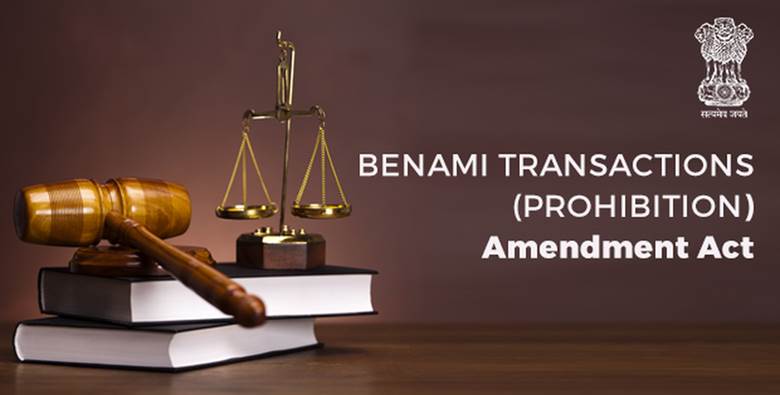BENAMI LAW 2016

Copyright infringement not intended
In News
- The Supreme Court of India has stated that the amendments introduced to the Benami law in 2016 were “unconstitutional and arbitrary”, as these laws were applied retrospectively and authorized the government to seize “any property” doubtful of a Benami transaction.
The reason behind Supreme Court Judgement
- The Benami Law 2016 amended the Benami Act of 1988, and it introduced mandatory imprisonment of 3 years for those who were involved in any Benami transactions between 5th September 1988 and 25th October 2016.
- According to the 2016 law, a person can be sent to jail for his/her involvement in any Benami transaction done in the last 28 years before this law was made.
- Supreme Court highlighted that the 2016 provision violated Article 20(1) of the Indian Constitution.
- Under Article 20(1) no person should be convicted of any offence, except for violation of the law in force at the time of the execution of the act charged as an offence.
Key Features of the Benami Law 2016
- The Benami law of 2016 has amended the Benami Transactions Act, 1988.
- The law aims to:
- Amend the definition of Benami transactions
- Establish adjudicating authorities and an Appellate Tribunal to deal with Benami transactions.
- Decide the Penalty for entering into Benami transactions.
- It defines a Benami transaction as a transaction where a property is held by or transferred to a person, but the transaction amount was paid by another person, it also includes transactions where:
- The transaction was made in a fictitious name.
- The owner was not aware or knows the property owner.
- Specific cases were exempted from the definition of Benami transaction. These cases include where a property is held by:
- A member of a Hindu undivided family, where the property was held for other family members’ benefit.
- Property in the name of his spouse or child and the transaction amount was paid for from the person’s income.
- An Authority to acquire benami properties was also established. The law established four authorities to conduct inquiries or investigations regarding benami transactions:
- Initiating Officer.
- Approving Authority.
- Adjudicating Authority.
- An Initiating Officer may issue a notice if he/she thoughts that a person is a benamidar.
- The Officer may hold the property for 90 days with permission from the Approving Authority.
- The Officer may pass an order to continue the holding of the property even after 90 days.
- The Initiating Officer will submit all documents to Adjudicating Authority.
- The Authority will examine documents and evidence and pass an order on whether or not to hold the benami property.
- Based on an order passed by Adjudicating Authority, the Administrator will manage the property.
- It established an Appellate Tribunal to hear appeals against the Adjudicating Authority.
- Certain session courts were designated as Special Courts.
- Imprisonment up to 3 years, or a fine, or both for involvement in benami transaction.
- Imprisonment of 6 months up to 5 years for providing false information.
https://epaper.thehindu.com/Home/ShareArticle?OrgId=GAIA6FE36.1&imageview=0




1.png)
